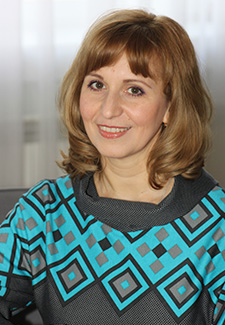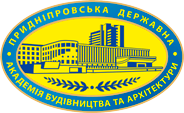Scientific profile

Senior Lecturer
Olena
ZHURAVLOVA
Contacts and CV
Research
Current research
«Enhancement of the efficiency of water supply and sewage systems, as well as small water objects» (0121U100400) calculations of the reliability of the water supply network in Novomoskovsk, Dnipropetrovsk region, development of a methodology for calculating the reliability of urban water supply networks with the aim of improving it.
More
Past research
«Improvement of water supply and disposal systems operation, as well as methods for calculating the foundations and structures of water supply and hydrotechnical facilities» (0116U000779).
More
«Study of water flow processes»: analysis of theoretical models of flow, movement of two-phase fluid flows, methods for calculating flows in natural and artificial channels.
More
Publications
1. Шарков В. В., Нагорна О. К., Журавльова О.А., Нестеров Я. С. Удосконалення методики визначення величин зниження рівнів води у вертикальних колодязях групових водозаборів / Вісник Придніпровської державної академії будівн. та архіт. Науково-практ. журнал №2 (251-252). Березень-квітень 2019. Дніпро: ПГАСА. 2019. С. 57-64. https://doi.org/10.30838/J.BPSACEA.2312.221019.68.524
2. Нестерова О.В., Шарков В.В., Журавльова О.А., Нестеров Я.С. Проблеми басейнів малих річок / Вісник Придніпровської державної академії будівництва та архітектури. Дніпро: ПДАБА. 2019. Вип. 5. С. 67 – 75. https://scholar.google.com.ua/citations?view_op=view_citation&hl=ru&user=Ja3a37gAAAAJ&citation_for_view=Ja3a37gAAAAJ:M3ejUd6NZC8C
3. Шарков В.В., Циганкова С.Г., Нестерова О.В., Журавльова О.А. Розробка програми викладання дисципліни «Оптимізація та надійність систем водопостачання та водовідведення» / Науковий вісник будівництва. Том 99 №1 ISSN 2311-7257. Харків, 2020. С. 207 – 213 https://vestnik-construction.com.ua/images/pdf/1_99_2020/34.pdf
4. Шарков В.В., Нестерова О. В., Журавльова О. А., Жефруа Д. В. Пошук точок приєднання додаткових джерел живлення систем водопостачання / Український журнал будівництва та архітектури. Дніпро: ПДАБА, 2021. Вип. 3. С. 116-123. https://doi.org/10.30838/J.BPSACEA.2312.010721.116.774
5. Шарков В.В., Нестерова О. В., Журавльова О. А., Жефруа Д. В. Пошук точок приєднання додаткових джерел живлення систем водопостачання / Український журнал будівництва та архітектури. Дніпро: ПДАБА. 2021. Вип. 3. С. 116-123. https://doi.org/10.30838/J.BPSACEA.2312.010721.116.774
Courses
1. Fundamentals of hydraulics, water supply, and water disposal
When teaching this course, significant attention is paid to the study of the physical essence of processes, practical application of theoretical laws, hydraulic calculation of pipelines of various purposes. Students are introduced to the purpose and arrangement of water supply and drainage systems in settlements, including engineering equipment of buildings and structures of various purposes.
As a result of studying this discipline, students will master the theoretical foundations of hydrostatics and hydrodynamics, the physical essence of phenomena and regularities of changes in hydraulic parameters, tasks of calculating pipelines of various purposes and channels, the design and equipment of water supply and drainage systems, the basics of designing external and internal networks of water supply and drainage, methods of natural and wastewater treatment, tasks of operating water supply and drainage systems.
Knowledge of hydraulic laws allows solving various technical issues in the field of construction in pipeline systems and structures, where liquid is present or flowing.
2. Technical mechanics of fluids and gases
The subject of study of this discipline is the physical and mechanical properties of fluids, the theoretical foundations of hydrostatics and hydrodynamics, engineering hydraulic systems, and the applied nature of the science. Knowledge of hydraulic laws allows solving complex technical issues in the construction of piping systems and structures of various purposes. Students study the classification of fluids, the physical properties of fluids and gases, the fundamental laws of hydrostatics and hydrodynamics, the physical essence, and regularity of changes in hydraulic variables, the laws of groundwater movement, and the principles of drainage structure calculation. Additionally, they acquire practical skills in solving problems related to hydrostatics and hydrodynamics, calculating pipelines of various purposes, channels, preventing hydraulic shock phenomena, and determining the flow rate of groundwater to drainage structures.
3. Rational use and protection of water resources
The relationship between humans and the environment is becoming increasingly complex, and the consequences of human economic activities can be unpredictable. Water is one of the components of the biosphere, and its consumption exceeds the combined consumption of all other resources. The complexity of the rational use of water resources lies in the fact that it combines physical, chemical, biological, engineering, and social sciences. Students learn about the mechanisms of water use and the peculiarities of water consumption by different industries, acquire the basics of ecological knowledge, form a worldview for future engineering work, and gain skills to solve issues related to the rational use and protection of water resources, including determining the state of water bodies, developing water balance schemes for water management that take into account the needs of all consumers, identifying opportunities for reducing water consumption and waste water discharges into bodies of water, preventing phenomena that worsen the state of water bodies, and developing sequential and reverse water supply systems. Significant attention is paid to studying the legislative framework of Ukraine in the field of the use and preservation of water resources.
4. Circular economy of water management system and water law
The objectives of the discipline are to provide knowledge and practical skills, to develop an understanding of the significance of the discipline as an applied science, its role in the design and operation of water management systems, and to teach the basics of designing water management systems for industrial enterprises and settlements based on the characteristics of the circulation economy of water resources. Special attention is paid to the study of the legislative framework of Ukraine in the field of water use and conservation.
Education recipients will learn how to solve specialized questions and practical problems in construction and civil engineering that involve the application of the basic theories and methods of water resource science, characterized by the complexity of their application.
5. І engineering hydraulics
The program of the discipline involves studying the physical processes in real water flows and methods of calculating separate hydraulic structures. Significant attention is paid to the consideration of the physical essence of the processes, the practical application of theoretical laws to acquire engineering skills in the field of water supply and drainage during the design, construction, and operation of structures and systems of various purposes.
As a result of the training, students will master the basic laws regarding the calculation of hydraulic parameters and flow characteristics, theoretical foundations of steady uniform and non-uniform flow calculations, structural features, operating conditions, and calculation of spillways, types of conjugation of conduits, laws of groundwater movement, and learn to apply them to solve practical tasks.
6. Theoretical principles of natural and wastewater treatment technology
The program of the discipline involves the study of the physical and chemical properties of water and its phase-dispersion state, the basic methods of natural and wastewater treatment, the features, schemes of operation, principles of calculation, and operation of technological equipment, providing the students with basic knowledge for studying specialized disciplines of professional orientation. Significant attention is paid to the consideration of the physical essence of processes, practical application of theoretical laws, hydraulic calculation of equipment.
As a result of learning, the students will be able to classify water by phase-dispersion state of impurities, determine effective methods of natural and wastewater treatment, calculate the basic parameters of structures, and prevent the negative impact of discharged treated effluents on water resources.
